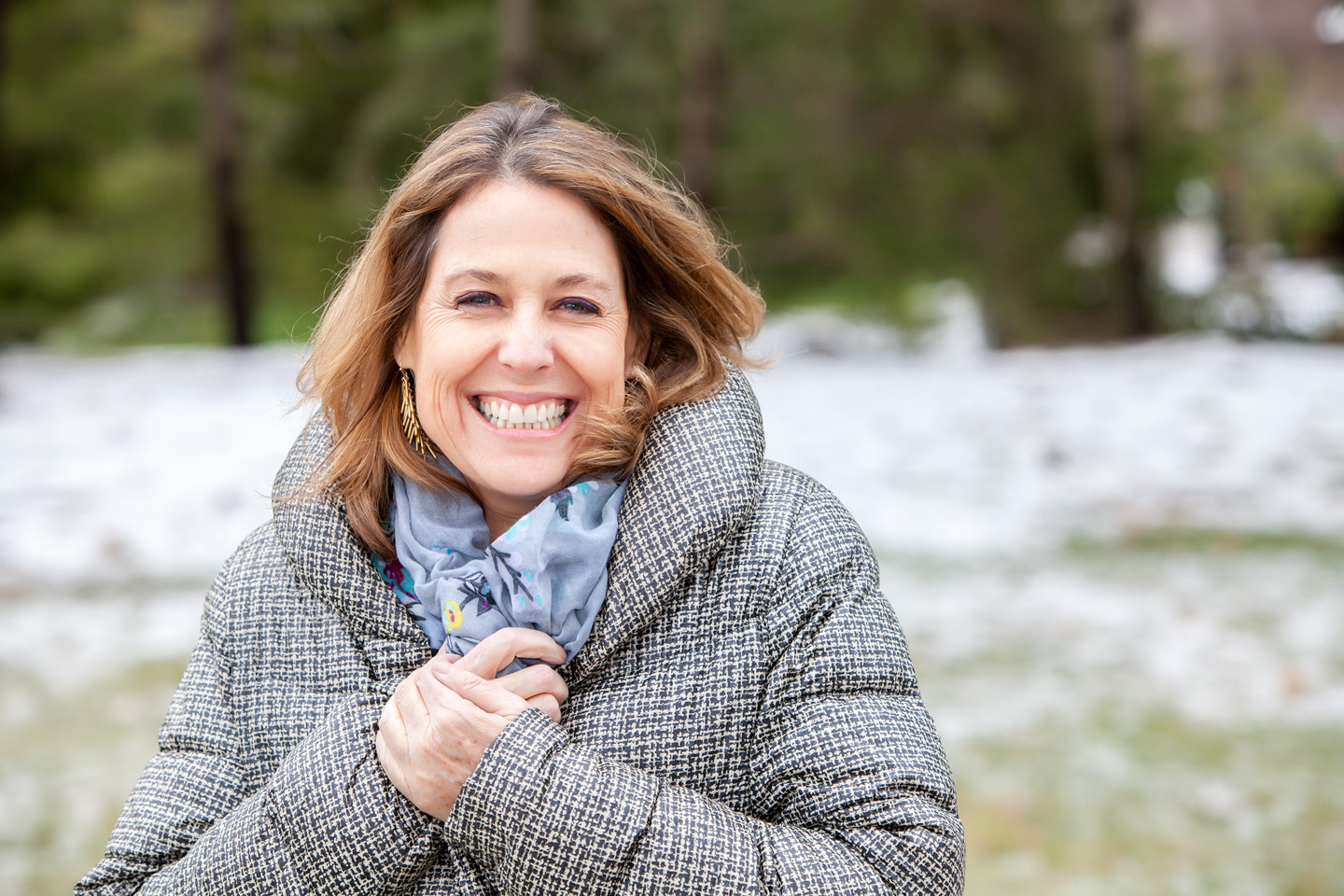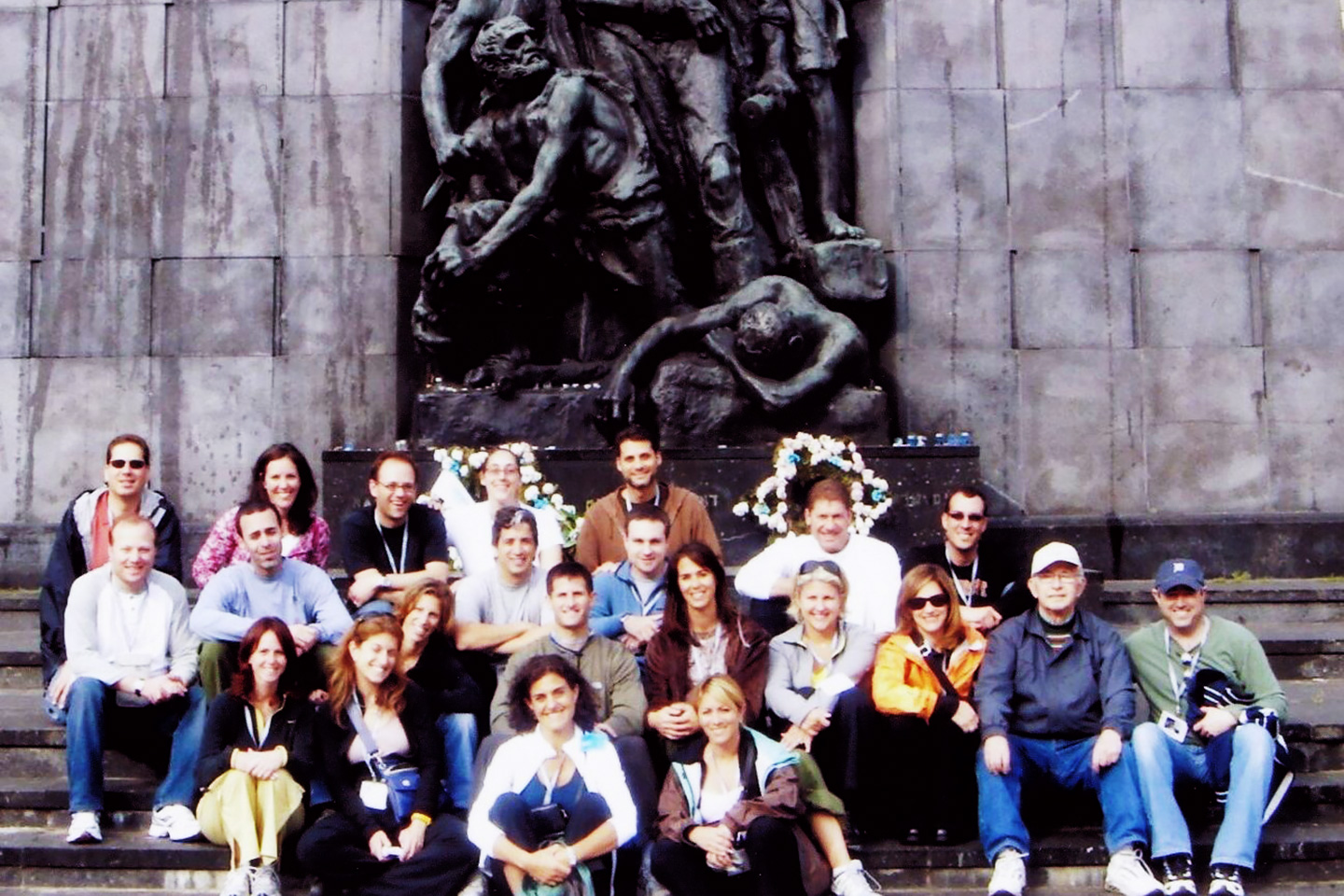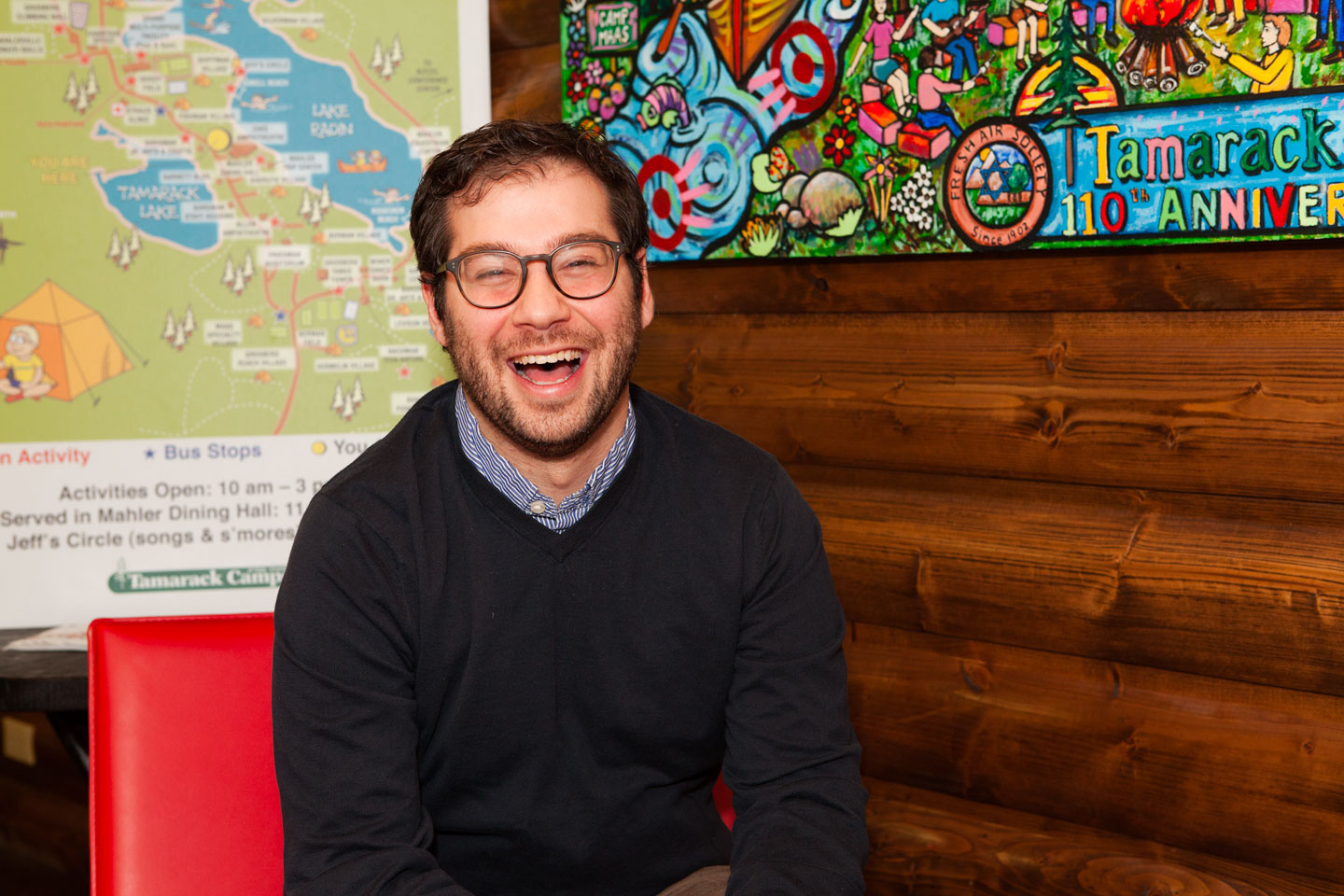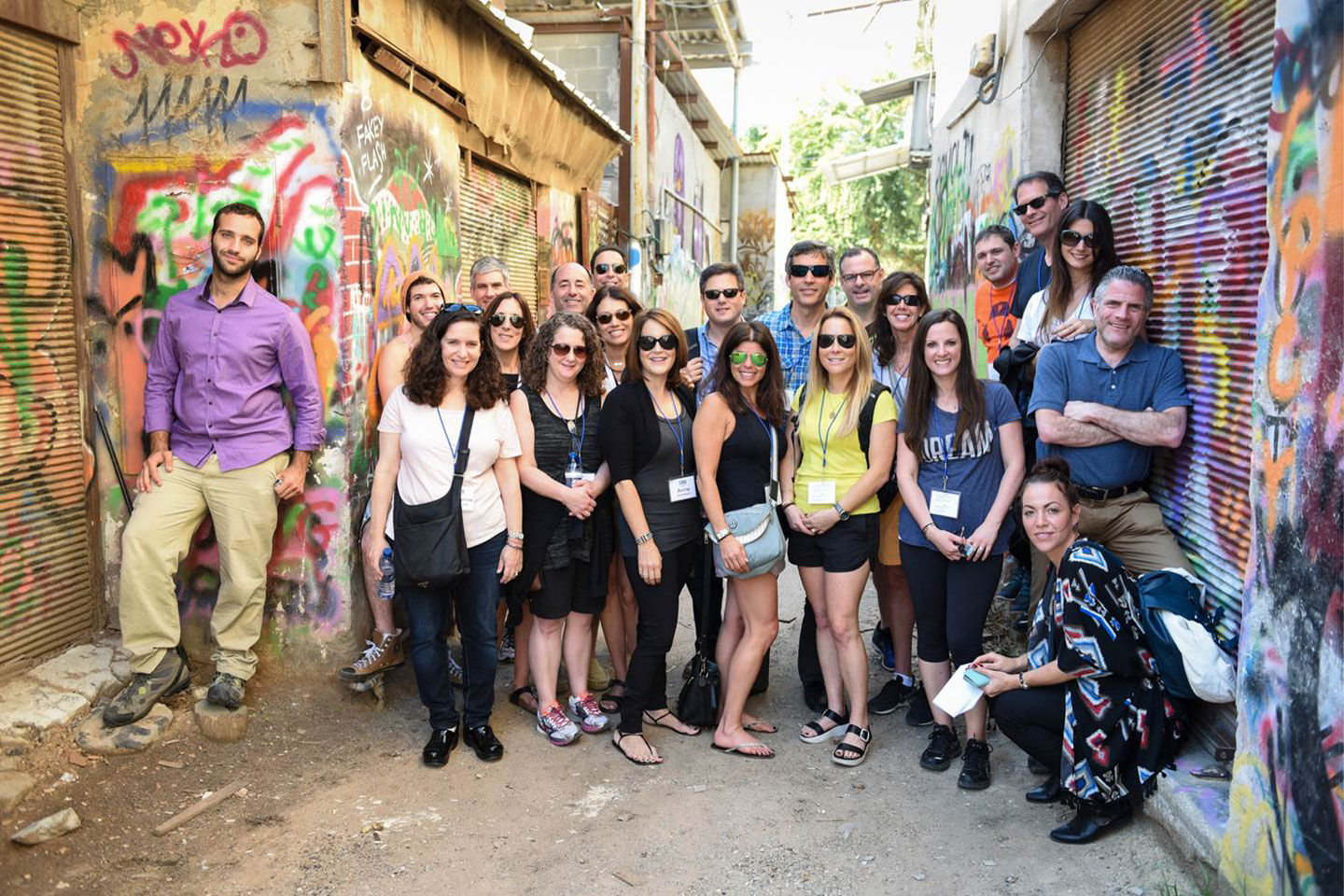Federation’s Mission Control
By Vivian Henoch, Editor myJewishDetroit
March 17, 2016
by Vivian Henoch
Invariably, people on Detroit Federation missions to Israel return with glowing praises:
“No one does missions better.” –Rob Orley, co-founder of Real Estate Investment Group and a veteran mission leader
“You can’t read enough in blogs and newspapers to synthesize the amount of knowledge and insight we gained in just those four days spent in Israel.” – Jeff Forman, past co-chair of Federation’s Annual Campaign
“Days of Wows . . . unforgettable. . . inspiring.” -Scott Stern, Chief Operating Officer, Federation
Behind the scenes on every mission – and often behind the microphone on the bus, taking lead of the tour, there’s Naomi Miller Rockowitz, Federation’s Director of Missions and Exchanges, on staff in Jerusalem.
A key member of the Federation staff since 2002, Naomi was recruited to lead the first delegation of 300 Israeli campers to Tamarack. Since that first summer in Ortonville, Naomi has become a familiar face in the Detroit community, well connected as a “Tamarack mom.”
Anyone who has heard one of Naomi’s talks on “Jewish geography Israeli-style” knows her to be both astute and entertaining. “We’re a great place in a tough neighborhood,” she likes to say.
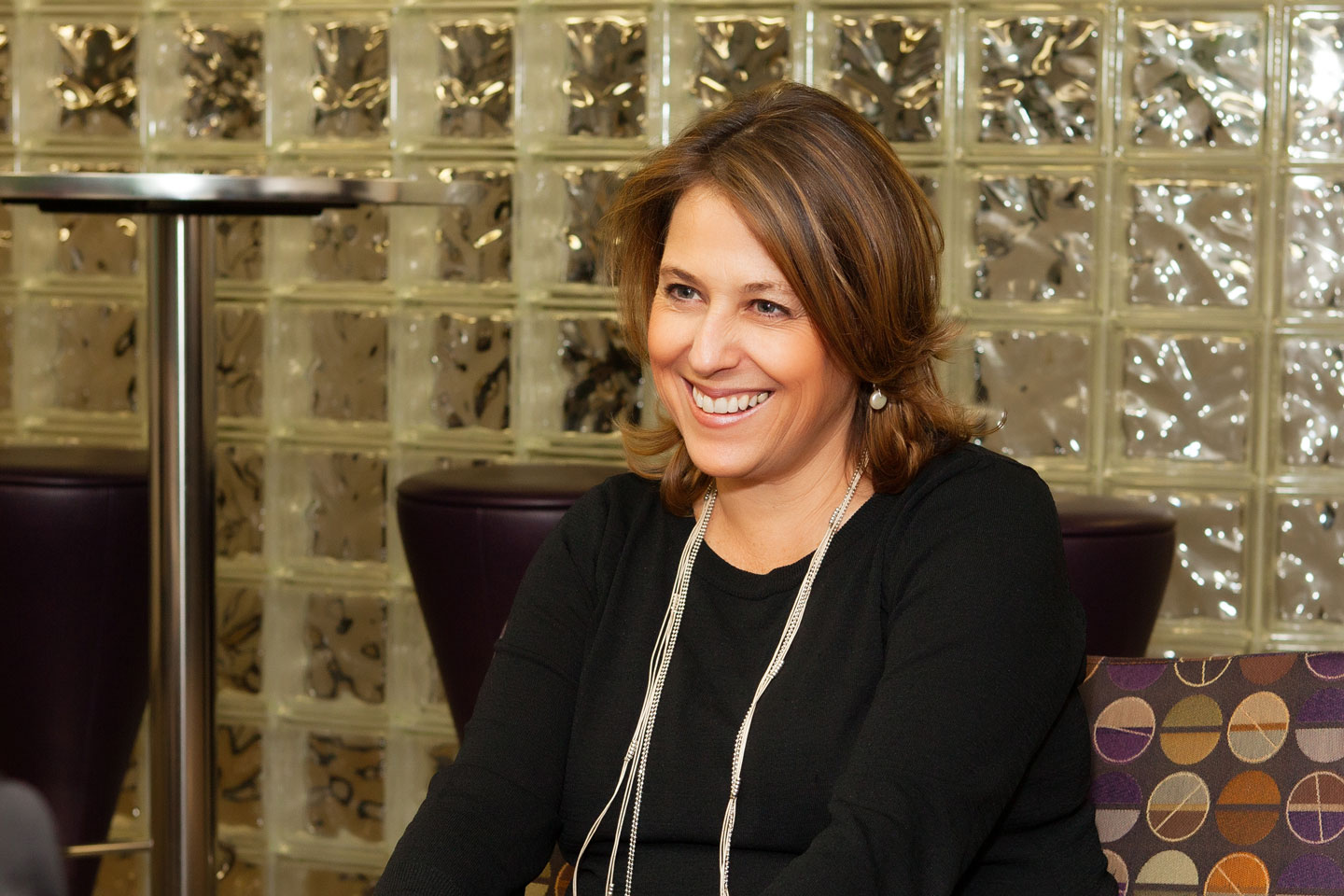
To the untrained ear, Naomi speaks Hebrew like a sabre. Her English reveals that Cate-Blanchet-like lilt of her origin Down Under. Born and raised in Melbourne, Australia, Naomi attended Jewish Day School and a Jewish camp, then headed off to Israel to earn a Bachelor’s degree in History and Education from the Hebrew University of Jerusalem. She additionally holds a Master’s degree in American Jewish Studies and the State of Israel from the University of Haifa’s Ruderman Program.
In Jerusalem for more than three decades, she’s made a career, raised a family and dedicated her life to sharing the challenges and the inspirations that are Israel today. Here are a just a few of her observations and insights:
On Federation’s Israeli Camper Program, from the start
myJewishDetroit: Now in its 15th season this summer, Federation’s Israeli Camper Program continues to be an extremely positive community-building experience for campers and host families alike. Tell us how it started.
Talk about small miracles. Just so you understand, the year was 2002; as the violence of the Second Intifada escalated in the spring, Federation’s Teen Mission was cancelled. The Israeli Camper Program was a community initiative – the brainchild of Robert Aronson (Federation CEO at the time), Harvey Finkelberg (Tamarack Camps Director at the time), Tamarack Camps and community leaders – working together in an emergency response, with the idea of bringing more than 300 Israeli teens to Tamarack Camps.
As a tour guide, I had an ongoing relationship with the Detroit community and basically when the camper program launched, they needed someone to run it. It was May, at the peak of the Intifada, and at the time there weren’t a lot of tours or missions to guide in Israel, so Federation recruited me to take the lead, recruit and bring the teens to Tamarack Camps. I went to Jewish summer camp in Australia; camping was in my DNA, so I thought I’d give it a go. For the kids, it would be a respite from a difficult situation at home.
And, at the very start, it was chaos! Everything was first-time and last-minute. But it was an incredible bonding experience and some of those first-time campers and counselors are working with us to this day. Yoav Raban, a former Community Shaliach (Emissary), is now on staff in Israel as Federation’s Outreach and Engagement Coordinator and Eviatar Baksis is in Detroit this year as an Israel Emissary to Hillel of Metro Detroit.
For me, the Camper Program was supposed to be a four-month job. And here I am 14 years later. I’ve come to Ortonville for 10 summers and my sons, Yoav and Alon, were campers and counselors there and joined me every summer until they joined the IDF.
On the role of tour guide and missions
How has your role expanded over the years?
I made Aliyah in 1982, and was a tour guide for years prior to working with Federation. I still love tour guiding, and the good news is that I don’t have to give it up in my current job.
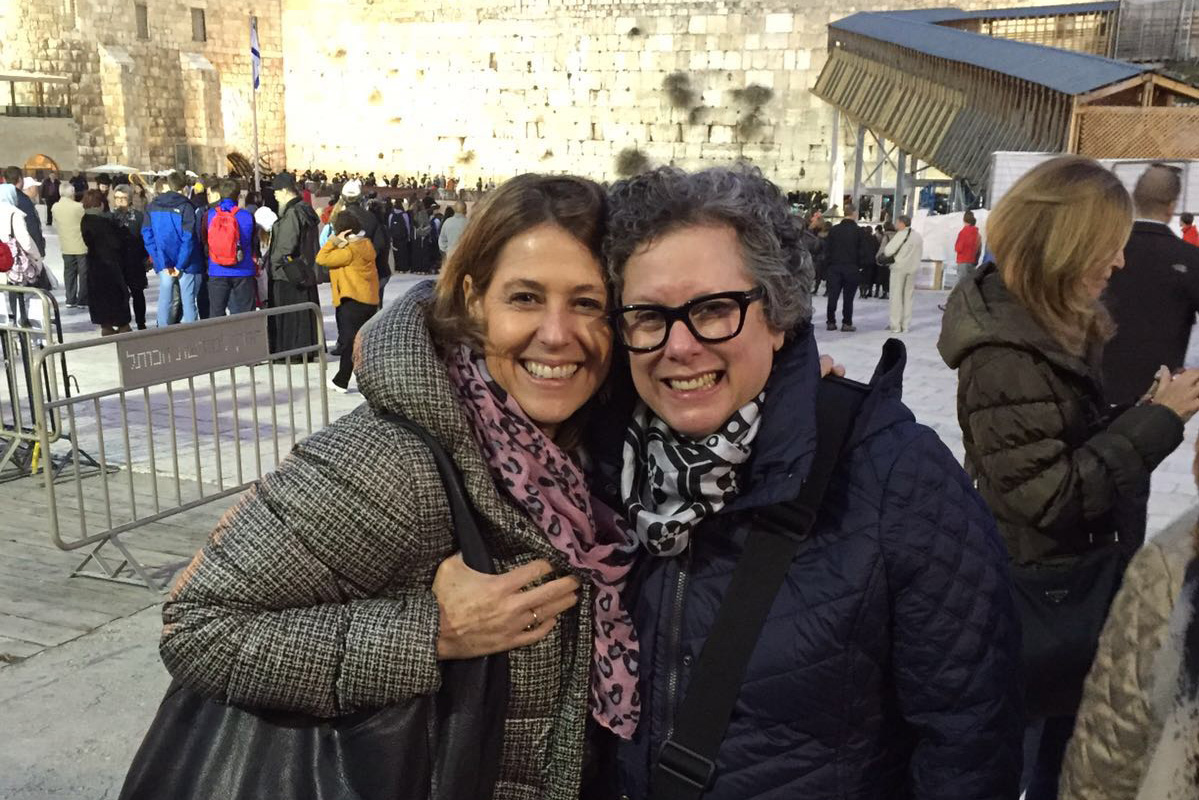
Working out of the Federation office in Jerusalem, I have multiple roles: There’s my work with Federation, there’s the connection to the Partnerhship2Gether region and there’s the national Federation component through my work with JDC, JAFI as well as numerous NGOs and Federation partnerships. Through those connections, I keep an eye on our allocations to programs as well. I also chair a forum of community reps – all from different Federations in the U.S. All of my counterparts work solo, so it’s great to come to the hub in Jerusalem and network with others.
Recently, I finished my Master’s degree through a program jointly run by Haifa University and New York University exploring the history of American Jewry, and its relation to the State of Israel. I believe that component of my education has enriched my experience, as a guide, a Federation representative in Israel and Mission Director.
In your view, what makes a Detroit Federation mission exceptional?
Preparation before, and follow up after . . . that’s a factor, as well as a little Jewish geography, and by that I mean a degree of engagement with people and activities directly related to Detroit. For example, a few years ago, we were on a Grosfeld Mission, visiting an army base and a woman commander, standing with 50 other soldiers, suddenly calls my name, ‘Naomi!’ She was a Tamarack camper and she comes down the hill, and by sheer coincidence a member of her host family, Darren Findling, was with us. That’s what makes us so different: we have established a community that is very engaged with Israel with so many strong personal relationships – that when people visit, they have some kind of connection, even if they have never been.
And the size of the community matters too. The Detroit community is a good size. We have the power and critical mass to make a tangible contribution and impact and still we’re small enough to know one another. I think that’s unique. I can’t tell you how many times people say they were having a meal in a restaurant, and the waiter speaks English, and they remark how well and the waiter will say, “Oh yeh, I was at summer camp in Michigan where I learned to speak like this.”
On the expanding role of Israeli philanthropy and volunteerism
How has the relationship between Federation and Israel evolved or changed?
Historically, Israel has always been a much poorer country than the U.S. There’s still a large gap between rich and poor. Even while there’s still a growing core of wealthy Israelis, one third of Israeli children live under the poverty line today.
When I moved to Israel in the 80’s, people had a lot less disposable income. There wasn’t a mentality of giving. Philanthropy didn’t have the tax benefits that you have here in the U.S. and I think Israelis felt they sacrificed in different ways: paying high taxes and serving three years in the Army.
There was also an unspoken understanding in the relationship between Israel and Jews of the Diaspora – specifically in the United States: that Israelis will defend the country, look after the land, and stay here for the Jewish world, while the Jews in the Diaspora help support us. That was the relationship of the past.
And then it started changing in the 70’s, when Jewish communities in the U.S. began partnering with Israeli communities. No longer was it just about sending the money and investing in the building of a capital project; it was about partnering and began with “Project Renewal,” Prime Minister Begin’s brainchild.
That developed into what we call Partnership 2000 at the turn of the millennium. By the mid 1990s, we had cultural and professional exchanges, camper programs, teen missions, Birthright – all these programs fostering relationships and partners.
It’s taken its time, but now Israelis are saying that it’s not just for the Diaspora Jews to look after them; it’s not enough to serve in the army; it’s also time to contribute.
The haves in Israel are now far more aware of philanthropic giving. There are more family foundations and more projects where Federation partners with Israeli philanthropists. This leveraging enables more effective philanthropy.
In contrast, giving time instead of money – volunteering always has been a part of Israeli culture. Just as service in the Army is mandatory, there are mandatory volunteer programs in high school. Another movement growing in Israel is food justice with several organizations working to educate and advocate for healthy food and a sustainable environment.
On Israel security
What do you tell people who are nervous about going to Israel these days?
I say speak to people who have just come back. Ask them how they felt. The fact is that we’ve had five missions during this period of tension, not one cancellation due to concerns for safety. I would emphasize: speak to people who have just been to Israel and traveled in complete security. When I take my five year old granddaughter to the zoo, it doesn’t make the news. When you hear of an incident in the West Bank, that’s what makes news. But more typically, every day people are ‘going to the zoo.’
People who have just been to Israel will tell you they felt fine, they felt safe and they felt aware. And if you look statistically at 2015, we had 23 deaths as a result of terrorism. That’s horrific, if you are a member of those families of the 23 — but in Michigan there were just under 300 homicides in 2014. Israel is still one of the safest destinations to travel if you look at things statistically. You have to be a bit more alert, but it’s a comfortable country to travel in.

On making Aliyah
What do you tell people considering making Aliyah today?
I would say welcome! But do your due diligence. Israel can be very challenging — check that you are making Aliyah for the right reasons. Jewishly speaking, I would also say that I believe that in both Israel and Detroit you can live a very vibrant, strong Jewish life. So, if you are going to live in Israel, be sure that it’s the right decision for you. And if you come, you’ll be met with open arms, there’s no better country to come and be welcomed.
On getting the story right
What publications or websites do you consider to be the most trusted sources of information and news about Israel?
The Times of Israel and YNET News. The opinion pages offer short, diverse, and balanced views. I recommend the writing of David Horowitz. Authors I like to read include David Horowitz and Ari Shavit, My Promised Land: The Triumph and Tragedy of Israel. My favorite novel of all time: Tales of Love and Darkness, by Amos Oz.
Favorites
Restaurant: Nocturno – a small café with galleries and up-and-coming Jerusalem designers
Place to meet for coffee: Ella Café in Jerusalem (a hidden charming café, still a bit of a secret)
Food: Kubbeh soup from Azura, the oldest restaurant in the Machane Yehudah Market
Region in Israel: Seriously? I’m a tour guide, how can I favor one region over another??
Hotel: The Bereshit Spa – Ramon Crater in the Negev desert – almost heaven on earth…
Holiday: That’s tough, but probably Rosh Hashana – the family is always together and almost all Israelis celebrate it one way or another
Never leave home without: Tea bags
Fun fact: My first trip to Israel was in January 1980 – I had only ever seen pictures of Israel in sunshine, Israelis picking fruit, desert and camels (pre-Internet age, when we were informed by books!) So I had no warm clothes and was welcomed to Jerusalem with a snow storm!

